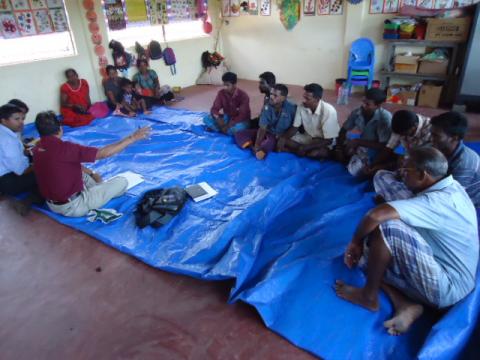You are here
Your PCMA Experience

Have you been involved with the planning and implementation of a pre-crisis market assessment? If so, we want to hear your feedback!
PCMA is still a relatively new approach, and so it's crucial that organizations share their experiences and learning with one another. This website aims to gather learning on any and all aspects of PCMA - whether on effective planning, team structure, selecting crisis scenarios, the practical application of assessment findings, developing market monitoring frameworks, or any other topic - in one place. We will periodically highlight specific voices from PCMA participants on this page.
[Recommendations for integrating gender into emergency market assessments from the IRC's 2-pager from a pilot PCMA in Niger]:
- Aim for a gender-balanced assessment team that includes qualified female enumerators/staff.
- Appoint someone with a strong understanding of gender as a “gender focal point” to ensure that gender is included in all steps of the assessment.
- Consider gender in critical market selection and the development of key analytical questions.
- Ensure the database being utilized allows for gender disaggregated analysis."
You have to be clear about your scenario preference when doing a PCMMA [PCMA] assessment. Take Sudan as an example, if you want to do a pre-crisis assessment about drought while the local market is suffering from on-going conflict as well, there is no need to rule out the conflict when you set the baseline, because that is how the local market would function even without the drought.
Along with colleagues from Concern, Oxfam and Save The Children, I took part in an integrated RHEA/PCMMA [RHEA/PCMA] in the drought-prone Shinile Pastoral Zone in the Somali Region of Ethiopia in October 2014.
One of the main learning points for us was the importance of selecting the right critical markets in the PCMMA [PCMA]. We conducted the RHEA and PCMMA [PCMA] assessments at the same time, and based on the previous knowledge including findings from the earlier HEA in the region, it was decided to focus on sorghum as the key commodity market in the PCMMA [PCMA]. However, as we started to undertake our RHEA household surveys, it became clear that rice and pasta were equally important to our communities in times of crisis, in fact more so, as in times of droughts there was also limited milk available, which is required for cooking sorghum. Therefore, livelihoods assessments can help inform the selection of the critical markets to be mapped in a PCMMA [PCMA].
This goes to show that there is value in and potential for sequencing livelihood and market assessments – there are also examples from the Ethiopia exercise where the PCMMA [PCMA] could have informed the RHEA.
